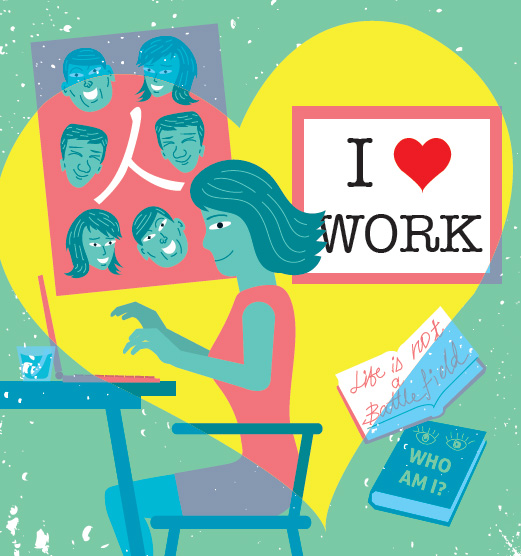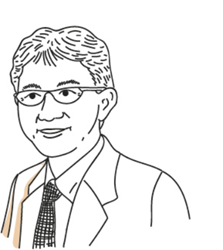What's Love Got To Do With Work?

The title of this article comes from Khalil Gibran’s poem “On Work”. There have been times I have misquoted it unwittingly, saying “Work is love made miserable”. A Freudian slip? Perhaps it was a reflection of my personal struggles.
My work has provided much fulfilment but it also gave me my darkest moments of anxiety, fear and stress. After a burnout, I began a quest to better understand myself.
My journey of discovery centred around this question: “What is needed for me to be at my best at work while experiencing joy, energy and meaning?” I believe many public officers seek answers to this too.
More than 10 years later, I have gained some insights on how work can become “love made visible”:
Love what you do and who you are
What jobs and projects energise you? What are your gifts, values, hopes and fears?
For a long time, I sought to be someone I thought the “system” honoured. My boss used to introduce me as “the mother in our organisation”. He meant it as an affirmation of my nurturing nature but it embarrassed me. I wanted to be “Go-getter” or “Marketeer” instead – attributes I thought the organisation valued. So for many years, I rejected my natural gift and tried to be someone else.
When I was promoted to my first international marketing position, I discovered I wasn’t good at it, nor did I enjoy it. It led to my burnout. When I recovered, I was assigned to oversee human resources and organisational development. The new work let me live out who I was – a mother (an encourager, pusher and cheerleader) and I could do what I loved and was good at.
Love why you do it and who you do it for
Why do you do what you do? What makes you get up in the morning and come to work?
During my low points, work had no meaning. It was just a series of deadlines and tasks, which I thought measured my worth as a person.
In my journey out of that darkness, I reconnected to the purpose in my work. Work is a reflection of my deepest convictions and values. When I have this, I no longer work to win acceptance.
Work is about people. I am fortunate to interact directly with the people I serve, so I can see their needs and try to understand their hopes and fears. Connecting to the people whose lives are impacted by our work is so important. It is easy to forget the faces, and see data and figures instead; to replace purpose with efficiency; to make the means the ends.
Love who you work with
What do you celebrate about the people you work with?
I used to compare myself to others – and ended up feeling either insecure or arrogant. With greater self-knowledge and self-acceptance, I have less need to compare, and recognise we are each different and of value.
So I have learnt to accept imperfection, value authenticity, and see others as whole persons who are more than their job titles. They, like me, have aspirations, gifts, fears and limitations. I am still learning to value and respect them as individuals, even when I disagree with their behaviour or actions. When I accept and appreciate my colleagues, the workplace becomes a great place to work.
Taking the first next step
When work is love made visible, it is an expression of the best of who we are and what we stand for. We see life as possibility, not a battlefield of winners and losers.
There are many skills, processes and frameworks that help us live these new ways of being. But the first step can be a simple one – to pause, put aside the burdens of the day, and reflect on what truly matters to you and what you love.
Take a couple of hours off; bring a journal; go somewhere conducive; reflect on the questions shared in this essay, and discover what “Work is love made visible” means to you.
Ms Khoo Seok Lin worked at the Economic Development Board from 1981 to 1996. She is currently an organisation development and change management consultant. She co-facilitates the Graduate Diploma Programme in Change Management at Civil Service College.
- POSTED ON
May 14, 2014
- TEXT BY
Khoo Seok Lin








